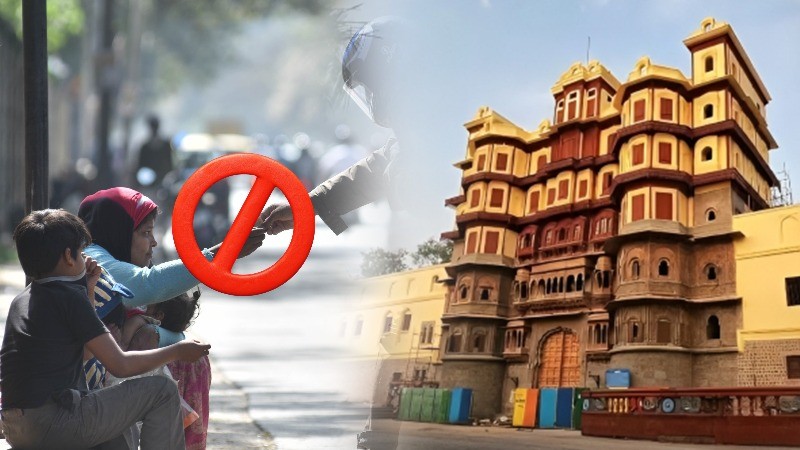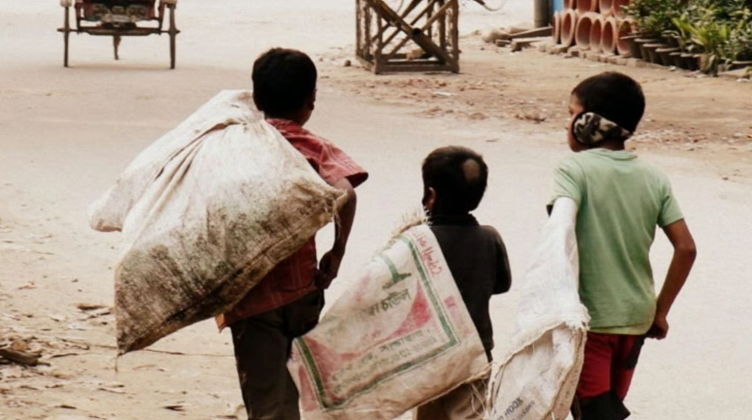
Begging is a long-existent phenomenon in India, with a significant population among all age groups asking for money and alms due to poverty and unemployment, among other reasons. Even small children are not spared, who are pushed down by families and operational gangs to beg in the nooks and corners of the city. In its efforts to eradicate begging from the city, Indore strived with the Bhiksha Vriti Mukt Abhiyan in 2024, aiming to achieve it by 2026. In May 2025, Indore claimed to have become India's first beggar-free city. A year-round program of livelihood and rehabilitation measures, along with a legal edge, is the city free from begging and beggars? Or the claim is a little too early...
Tall claims, less visibility on the ground
We can still find beggars on the streets, including children and the elderly. Would it not be right to say that what's said and told is nothing but tall claims that are not visible on the ground?
_68623a3955c99.jpg) Riya Jain emphasizes the strenuous efforts of the administration as well as organizations towards a Beggar-free Indore
Riya Jain emphasizes the strenuous efforts of the administration as well as organizations towards a Beggar-free Indore Riya Jain, Head Office Incharge of the Human Rights and Crime Control Organization in Indore, explains, "You can still find them begging because this has become a never-ending cycle. Like, we rescue beggars and then take them for rehabilitation, providing them with all the necessary comforts, even their livelihoods. But when you release them, some of them get back to their old ways. This is the new working manner for the beggars in the city."
 In the hopes of a beggar-free Indore, and a beggar-free India...
In the hopes of a beggar-free Indore, and a beggar-free India...The Indore district was one of the first 10 cities to work towards the 'Bhiksha Vriti Mukt Bharat' initiative, under the Ministry of Social Justice and Empowerment's pilot project, 'Comprehensive Rehabilitation of Persons engaged in the Act of Begging'. It is a sub-scheme of the Central Government's SMILE (Support for Marginalised Individuals for Livelihood and Enterprise) scheme. The city started with it in February 2024, in two phases:
Firstly, the beggars were caught and then sent for counseling, where they had to pledge never to beg again.
Under Section 163 of the BNSS (Bhartiya Nagrik Suraksha Sanhita), giving money and any alms to a beggar is a criminal offence from January 1, 2025. If there is a violation, the individual can face a jail term of 6 years and a fine of Rs . 1000.
Rescued beggars and their livelihoods: Under the Bhiksha Vriti Mukt Bharat Abhiyan, the rescued beggars are taken to rehabilitation centers where they are treated and provided with a livelihood, so that they do not beg again.
Riya Jain says, currently, there are nearly 500+ beggars who have been taken for rehabilitation and are living a better life. To make the beggars self-reliant, they are taught sewing, making handicrafts, incense sticks, and festival items during the season, such as Rakhis, decorative diyas, among others. Besides their training, the center also secures them jobs in factories and manufacturing units under the SMILE scheme.
The big question: What about the ones who are still begging?
Beggars are still active in the city, manipulating the administration, adopting new tactics every time. Riya Jain adds, "Firstly, they have become mobile; you won't find them sitting at a place to beg. Further, they try to sell things to extract some money. But, it is not that they are earning a livelihood this way. This has become just another form of begging. At least 10+ NGOs are actively working with the administration, along with cooperation from the citizens, to eradicate begging in the city. The job is not done yet; complete elimination has to be strived for continuously."
A year later, and a year more to go, for efforts to make Indore a beggar-free city, the question is, are we there? Or anywhere close to the distant dream...Perhaps we are. But, for the complete elimination of beggary, it might take time. For it becomes tougher as the social evil keeps bouncing back.